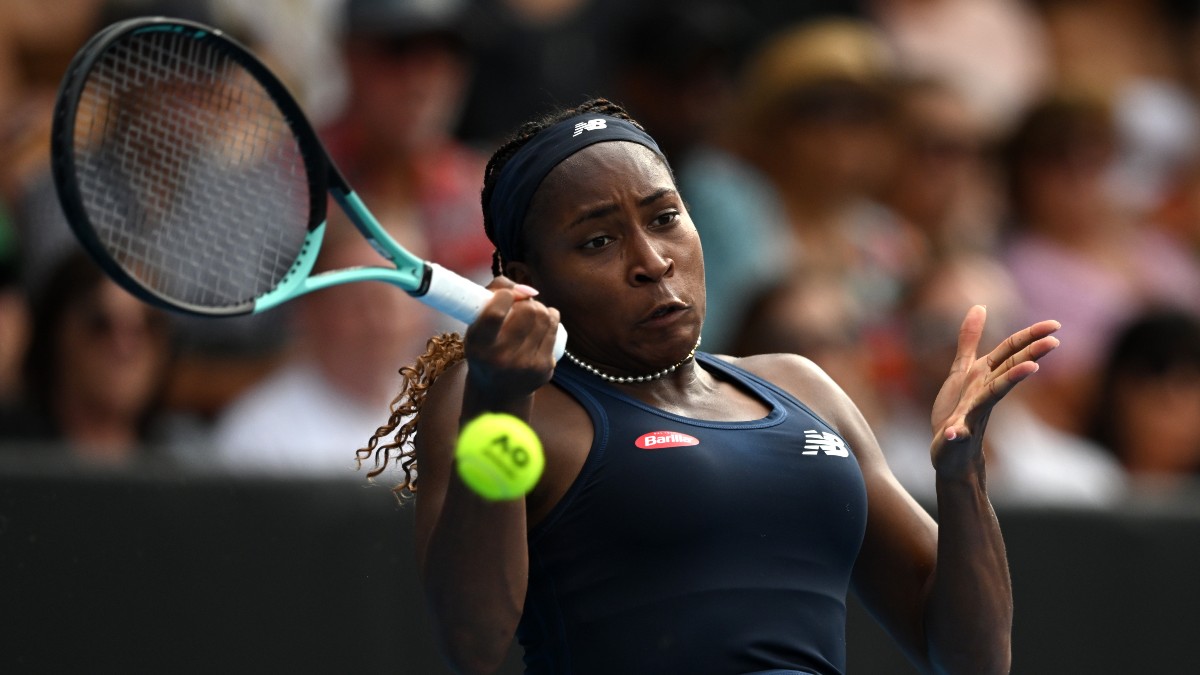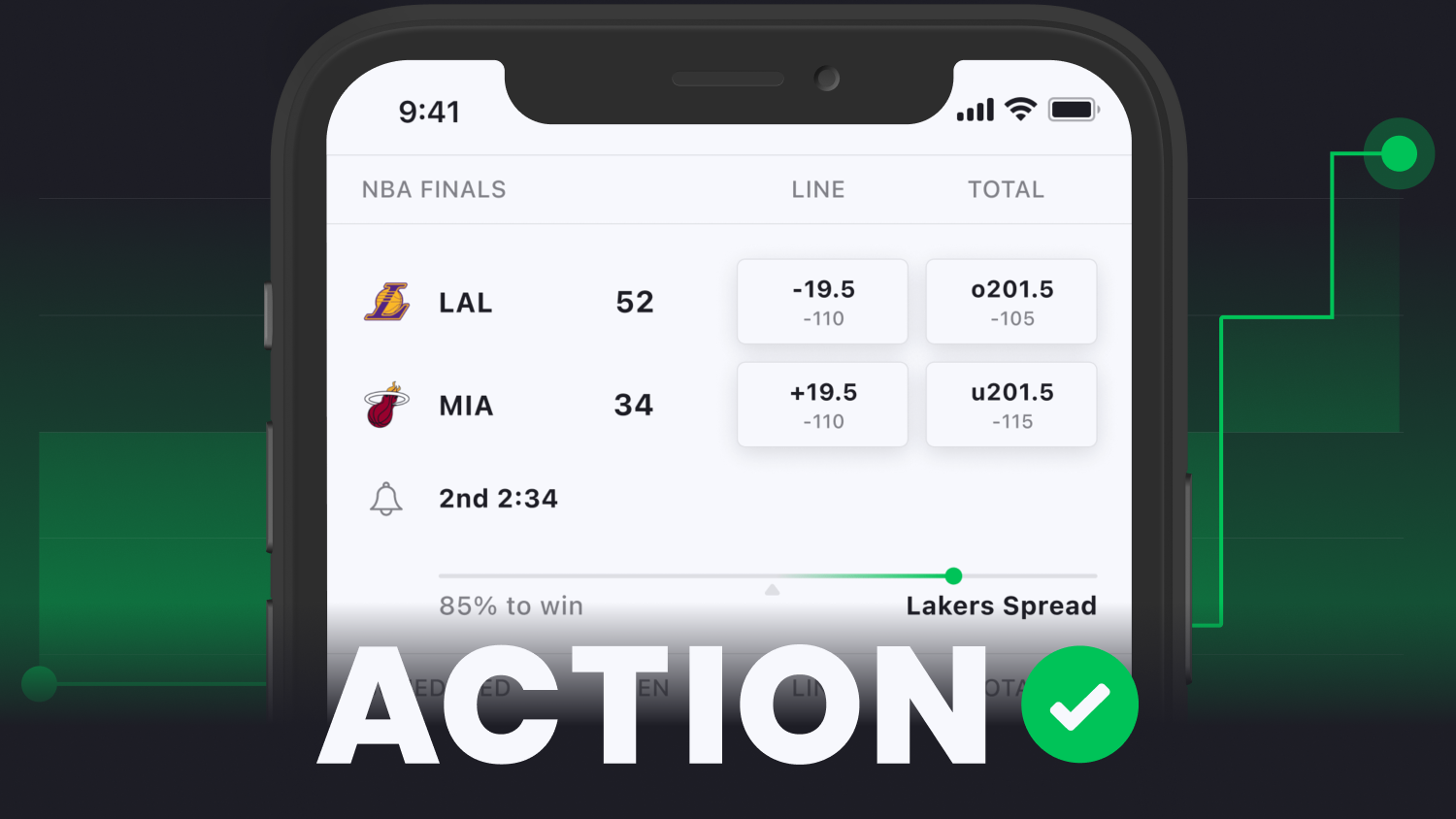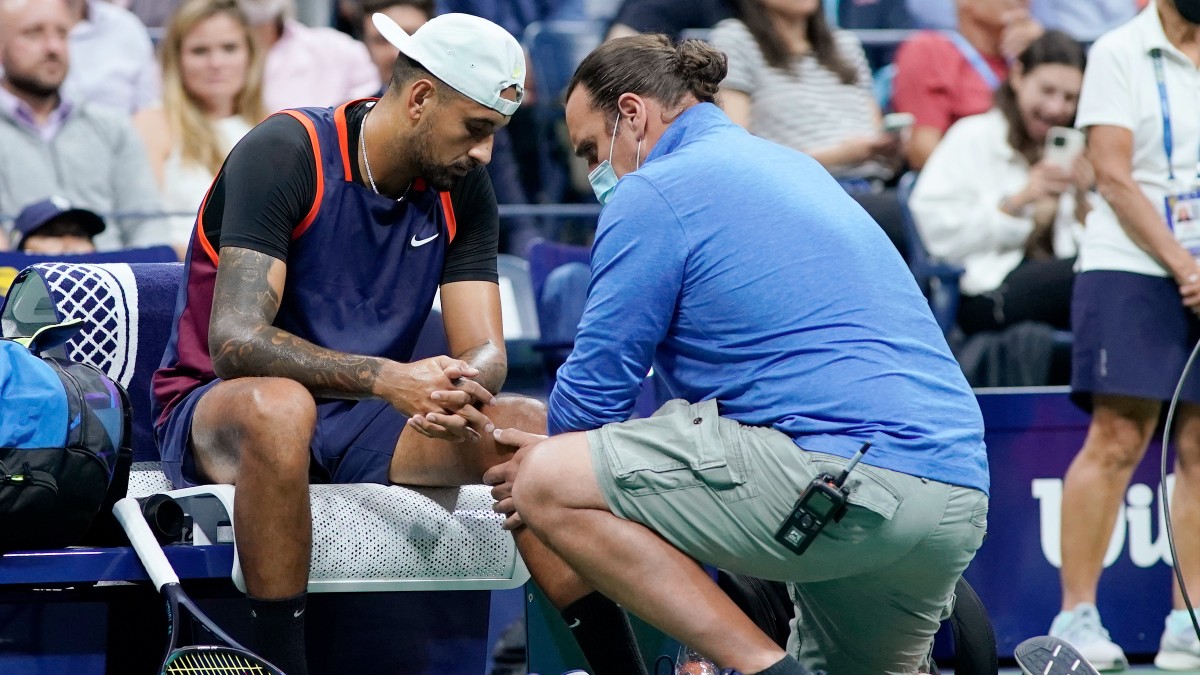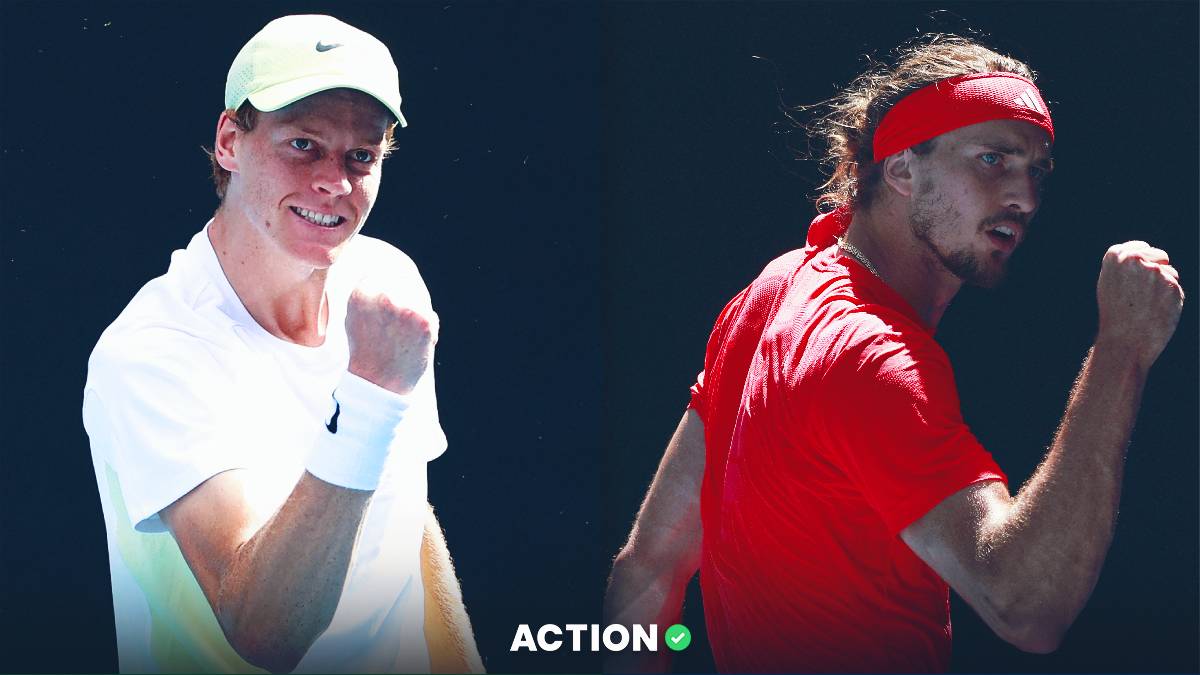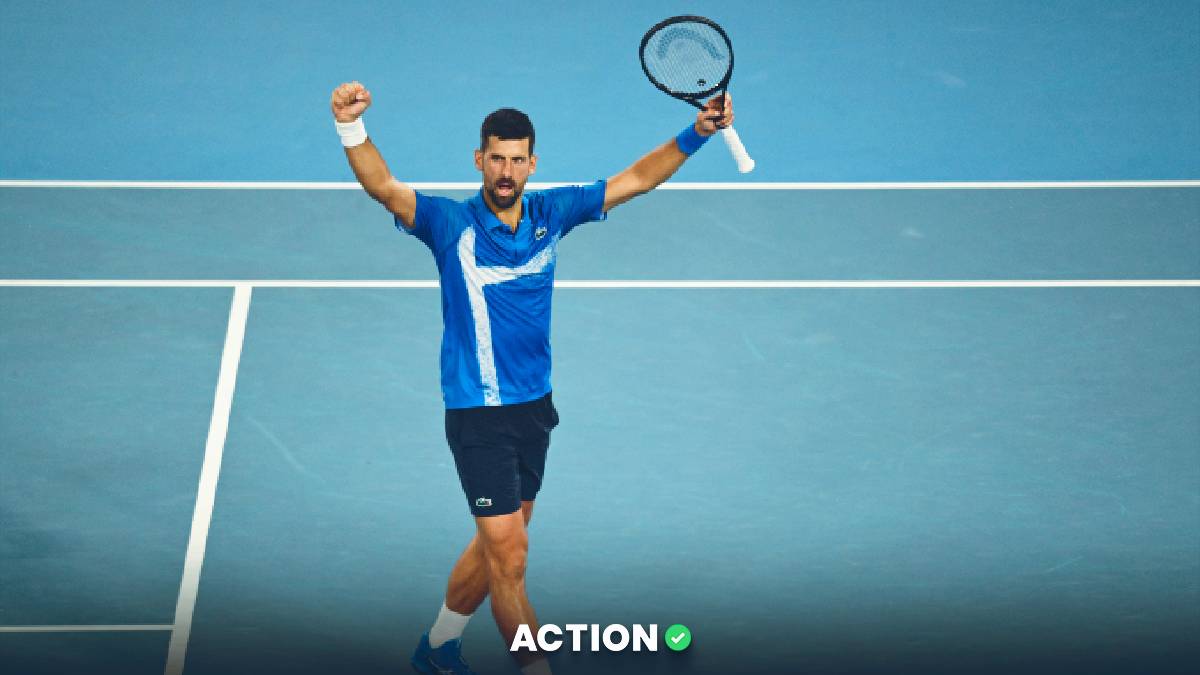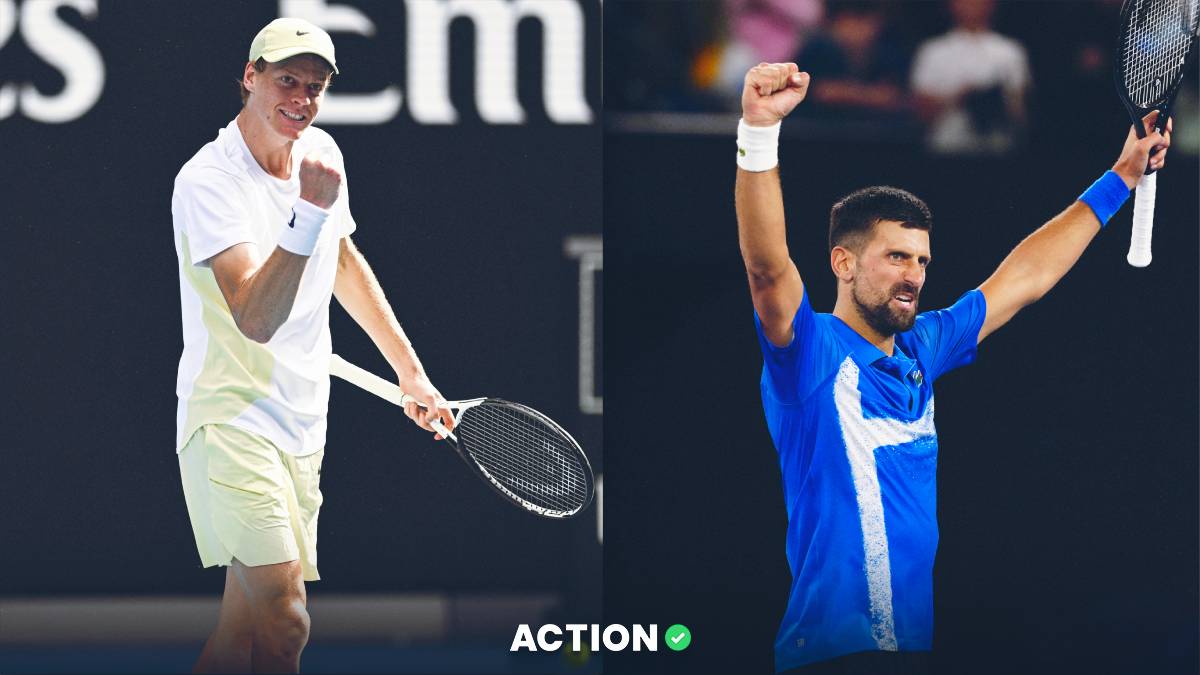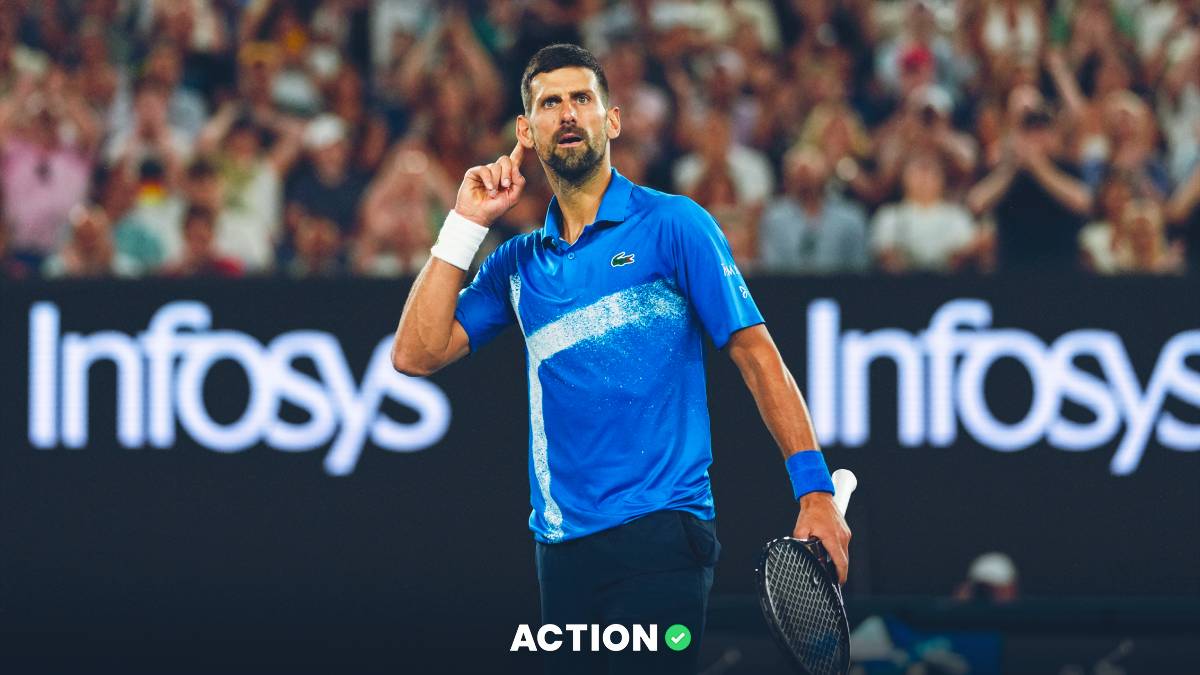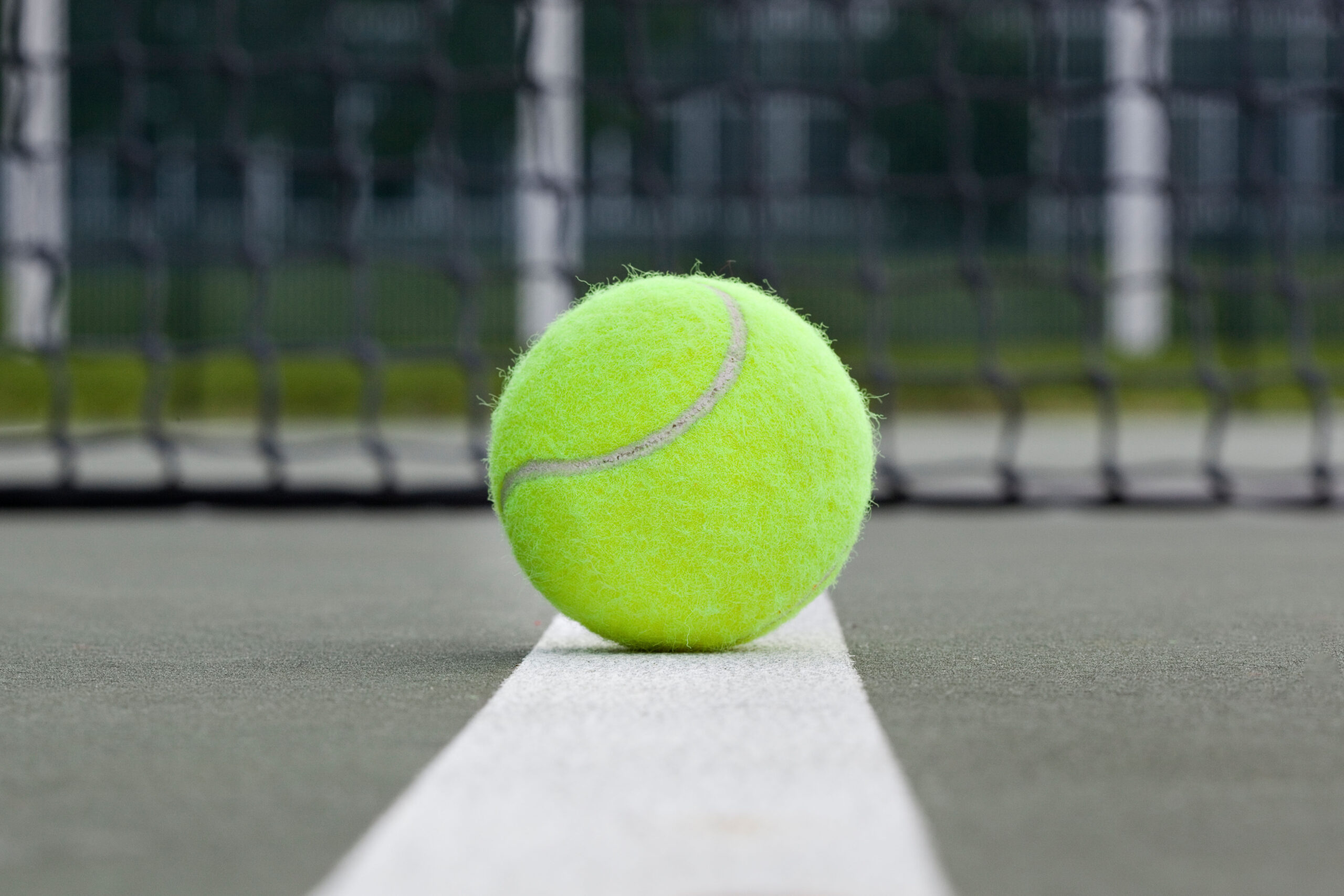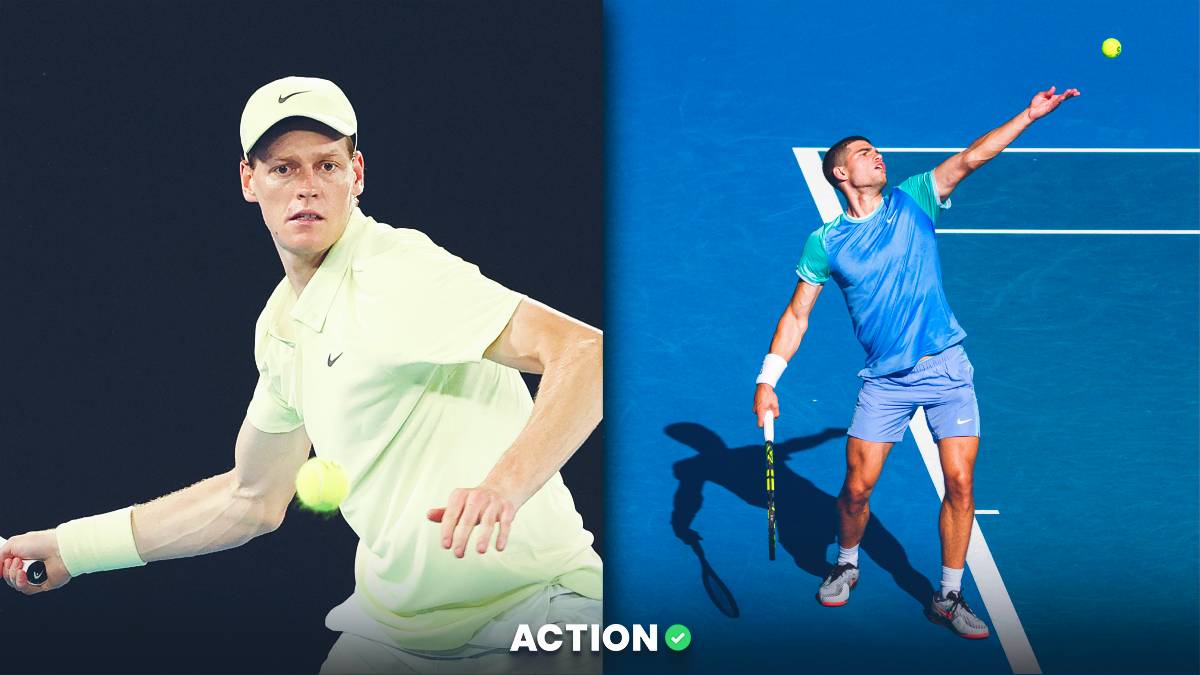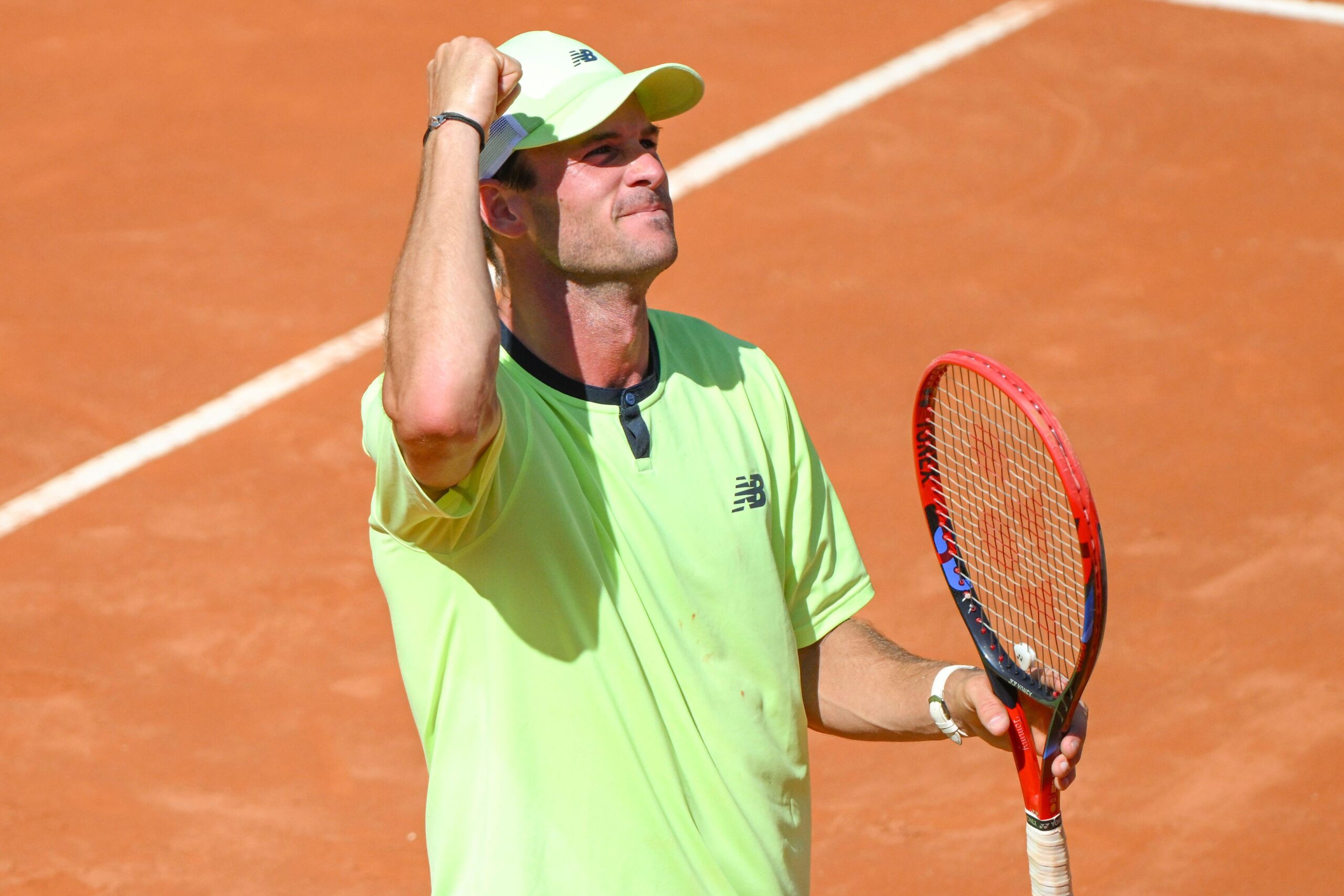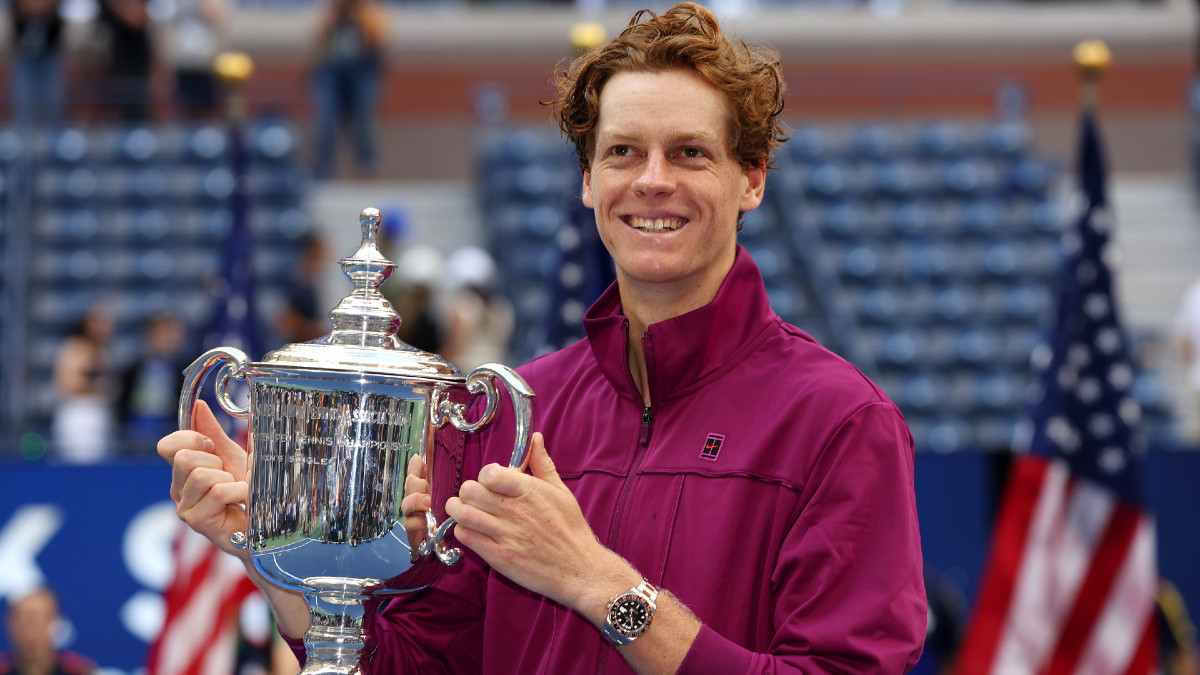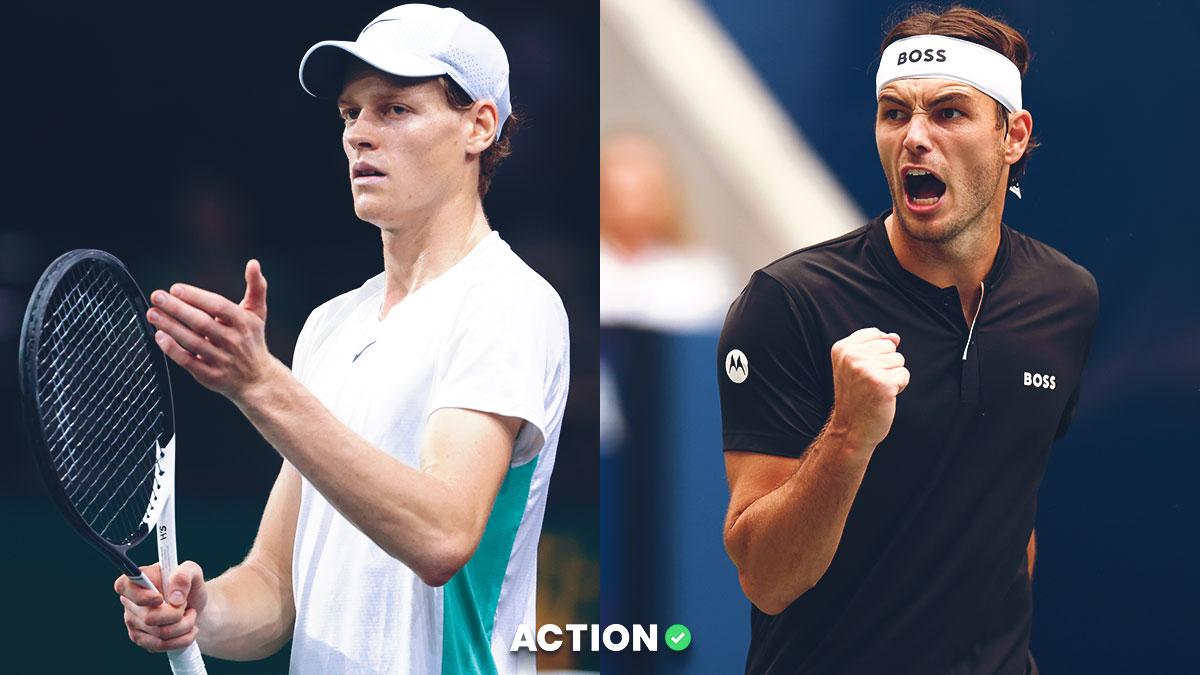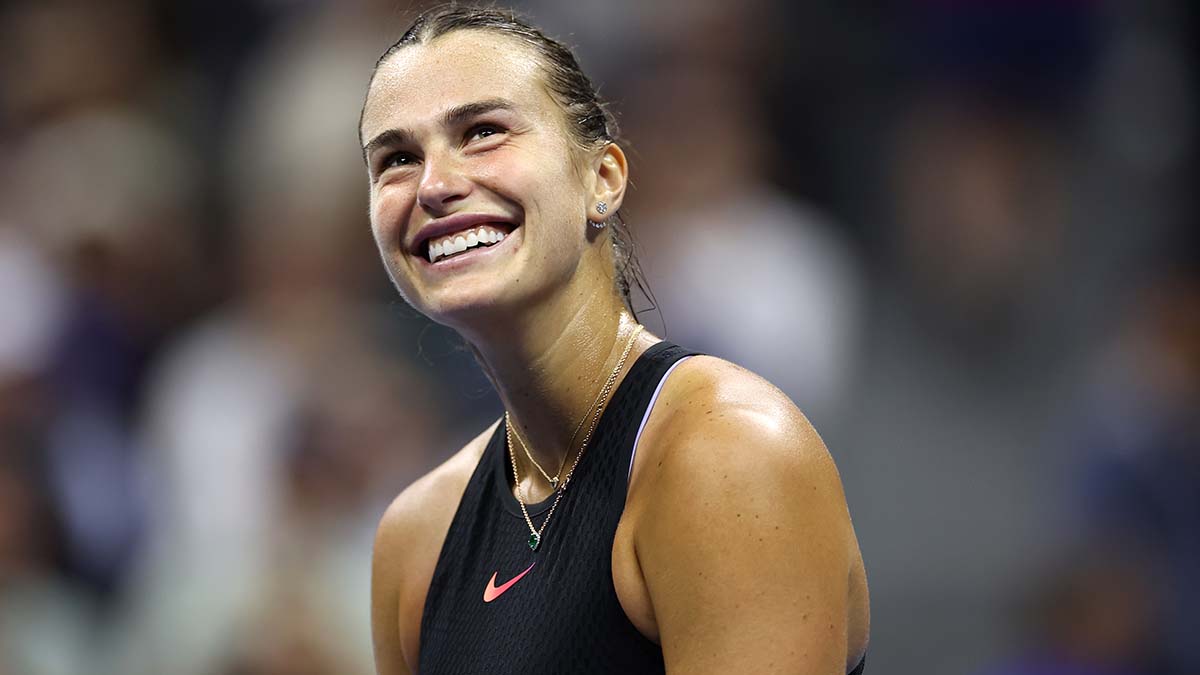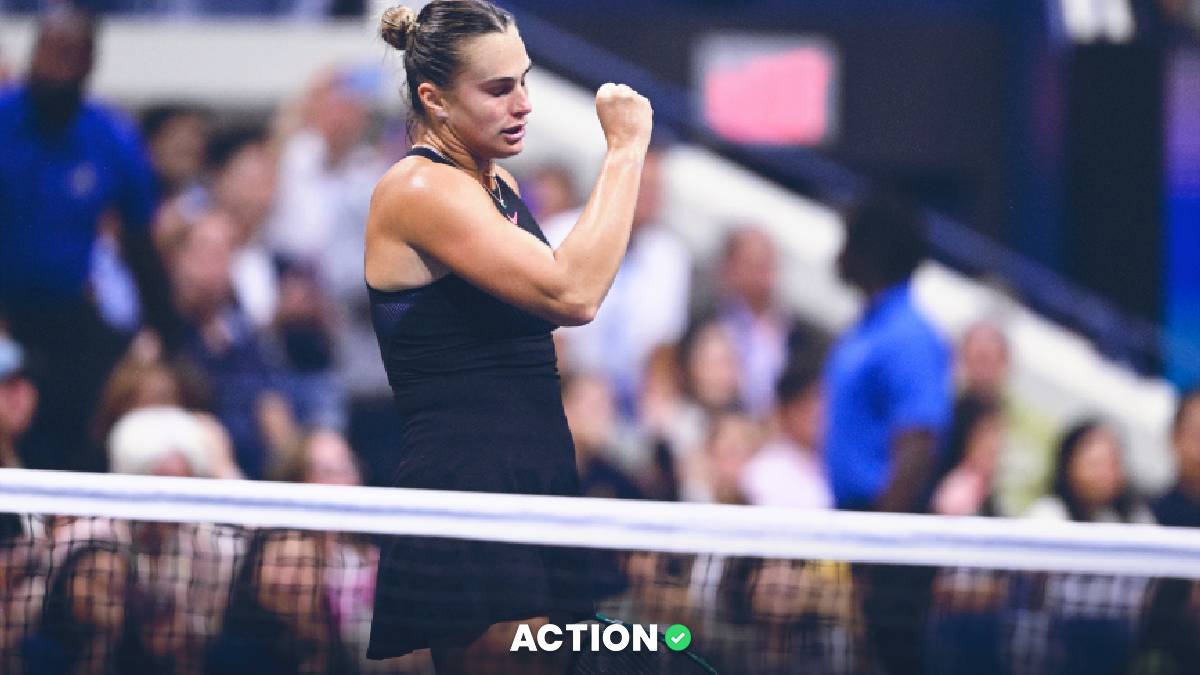The Australian Open has arrived and players are heading to Melbourne with the chance to start their seasons off with a bang!
2023 champion Aryna Sabalenka is in the mix, but after getting crushed by Elena Rybakina in this year's WTA Brisbane final, it's hard to fully trust the Belarusian.
So, how should you consider outright selections for this year's Australian Open? Who are a couple players to avoid betting on? Read on for my futures and bets as I analyze the Australian Open odds and deliver my picks.
Note: All odds came from FanDuel. The full women’s draw can be found here. Check out our latest FanDuel promo code to get the most out of your tennis betting.
Australian Open Odds & Predictions
Outright: Elena Rybakina (+500)
No. 3 seed Elena Rybakina enters the Australian Open in excellent form. The Kazakh won WTA Brisbane last week, defeating Aryna Sabalenka in a dominant 6-0, 6-3 victory in the final. Against the second-best player in the world in Sabalenka, Rybakina won 54% of her return points, 69% of her service points and was only broken once.
Unbelievably, that was the only time Rybakina was broken all week in Brisbane. In all five of her wins, in which she didn't lose a set, Rybakina won over 70% of her first serves and went 11/12 saving break points.
Overall, to start 2024, Rybakina has gone 6-1. This week, she lost 3-6, 3-6 to Ekaterina Alexandrova in the quarterfinals of Adelaide. However, after such a strong start to the season, Rybakina had proven everything she needed to in her first six matches. It was almost better for her that she didn't go too deep in Adelaide, as it gives her time to rest and recover, without worrying about overplaying.
Rybakina's game, as alluded to earlier, is serve-based. Last season, Rybakina was a top-five player on the WTA Tour in aces, the percentage of first serves won, and service games won. She was sixth in the percentage of service points won.
However, Rybakina is more than just a serve. She is a powerhouse from the baseline as well. The Kazakh has a huge forehand that she uses to punish short balls and maintain control of the ground. Her court positioning is strong, as it's hard to push her off of the baseline. And, while not as consistent, Rybakina can play offense and put her opponents on defense with her backhand, as well.
And, the draw sets up fairly well for Rybakina. She starts off with Karolina Pliskova, who has a high peak, but is inconsistent in all aspects of her game. In addition, Rybakina leads the head to head 3-0, having not dropped a set. Rybakina does everything a little better than Pliskova at this point, whether it be with her serve or her controlled aggression from the baseline.
After that, the Kazakh would play either Cristina Bucsa or Anna Blinkova. Rybakina just defeated Bucsa in straight sets in Adelaide, and Blinkova doesn't have reliable-enough power nor the defensive skills to seriously trouble Rybakina.
The seed that Rybakina could face in the third round is No. 26 seed Jasmine Paolini, an excellent draw. The Kazakh should destroy Paolini's second serve and the Italian is severely underpowered compared to Rybakina. She can get balls back in play, but she doesn't have great and her depth when playing defense isn't quite at the level where Rybakina should be worried.
In the round of 16, Rybakina would likely face either No. 24 seed Anhelina Kalinina or No. 14 seed Daria Kasatkina. Rybakina should have too much firepower for either player in her current form and should be able to completely dominate from the ground.
And while Rybakina is in Swiatek's half of the draw, the Kazakh has a 3-1 lead in the head-to-head, with her game tailor-made to give the Pole problems. Rybakina's power rushes Swiatek's groundstrokes, taking her out of her comfort zone.
This feels like a solid draw for an elite competitor playing excellent tennis right now.
Outright: Coco Gauff (+600)
After last year's US Open title, it felt like a weight lifted off of Coco Gauff's shoulders. And she's certainly playing like it to start the 2024 season.
Gauff easily won WTA Adelaide, dropping her only set all week to Elina Svitolina in the final. However, Gauff rolled through the final two sets, defeating Svitolina 6-7(4), 6-3, 6-3 to lift the trophy. Gauff won 72% of her 1st serves, 46% of her return points and broke on six occasions.
Overall, in her five Adelaide matches, Gauff broke 25 times. She won over 45% of her return points in all of her matches in Adelaide and over 50% of her return points in every match but the Svitolina final.
Gauff's first serve is strong and her backhand is an excellent weapon, allowing her to control the baseline from that wing. The American has a high tennis IQ and understands point construction at a high level. She's also an excellent volleyer.
But, where Gauff drives so many opponents mad is in her defensive and counterpunching abilities. The American is extraordinarily quick around the court and she's not just reaching balls, but able to turn points around from extreme defensive positions. Opponents greatly struggle hitting through her.
However, the one major liability in Gauff's game is her forehand, which is loopy and leaks errors. But, early this season, although a small sample size, Gauff has been better able to fend off opponents attacking that wing.
In the first round, the No. 6 seed Gauff will face Anna Karolina Schmiedlova. Schmiedlova doesn't have the pace on her groundstrokes to rush Gauff's groundstrokes and the American has the huge edge in backhand-to-backhand rallies.
In the second round, Gauff will face either Caroline Dolehide or a qualifier. While Dolehide has a lot of power on her groundstrokes, if these two meet, Gauff's defensive skills and foot speed should bait Dolehide into way too many errors.
Gauff's next match would likely be against No. 32 seed Leylah Fernandez. While Fernandez has raised her base level, dating back to late last season, her lefty cross-court forehand will go into Gauff's strength in her backhand. Fernandez also doesn't have the level of controlled aggression necessary to punish Gauff's forehand.
In the round of 16, Gauff will likely take on either No. 16 seed Caroline Garcia or No. 23 seed Anastasia Potapova. While Garcia did well to recently take a set off of Iga Swiatek, neither her nor Potapova have the level of consistency required to beat the American at her current level.
And Gauff's potential quarterfinal opponent, No.8 seed Maria Sakkari, is a very nice draw. Gauff didn't drop a set in their two meetings last season, and Sakkari often freezes up in the latter stages of tournaments. Gauff is much more trustworthy in a spot like this compared to the Greek.
Though No. 2 seed Aryna Sabalenka might await in the semifinals, we saw during the US Open final how much Gauff's defense bothered her, and the effect this has on Sabalenka's game. In that match. Sabalenka melted down as the match went on.
In addition, it's important to note that the other two most in-form players, Iga Swiatek and Elena Rybakina, are in the other half of the draw. It was especially important for Gauff to avoid Swiatek until the final, as it gives the Pole more chances for defeat before having to face the American. Gauff is 1-9 against Swiatek, going 2-19 in sets.
So, in this case, I'll take my chances on a confident player who generally blitzes through early draws, with her biggest competition on the other side of the draw.
Leave: Jessica Pegula (+1900), Ons Jabeur (+4500) and Maria Sakkari (+4800)
Given the American-centric hype surrounding Pegula, Jabeur being a big-name player who went to a Slam final last season at Wimbledon and the hype surrounding Sakkari's Guadalajara Masters 1000 title late last season, it might be tempting to take a couple long-shots on at least one of these three.
However, I do not recommend it. None of the three players have showcased that they're ready to win at the back-end of Slams.
As I mentioned before, Pegula is now 0-6 in Slam quarterfinals. However, that doesn't even account for matches like her round of 16 1-6, 3-6 defeat to Madison Keys at the US Open last season, a match in which she looked mentally checked out and lifeless.
Jabeur has showcased in all three of her Major finals so far that she is not mentally ready to win Slams. She often plays her worst matches when she needs to be at her best.
And, in Jabeur's case, she has a very dangerous potential second-round showdown with rising star Mirra Andreeva, so the chances that she even makes it to the end-stages of the tournament, where nerves become a factor, is on shaky ground.
Sakkari's Guadalajara title was inflated by a relatively-weak draw, so don't be fooled by any hype surrounding that event that you might hear in the Australian Open lead-up. In addition, Gauff is in Sakkari's quarter, and Sakkari has a very tough potential round of 16 showdown with No. 10 seed Beatriz Haddad Maia. Haddad Maia's lefty forehand into Sakkari's backhand spells trouble.
And even if Sakkari is able to make it to the semifinals or final, her mental weakness at these stages of tournaments makes her an unattractive option for an outright selection.
Note: I think that No. 1 seed Swiatek's (+220) odds look correct, so that's why she is not included in this article.


